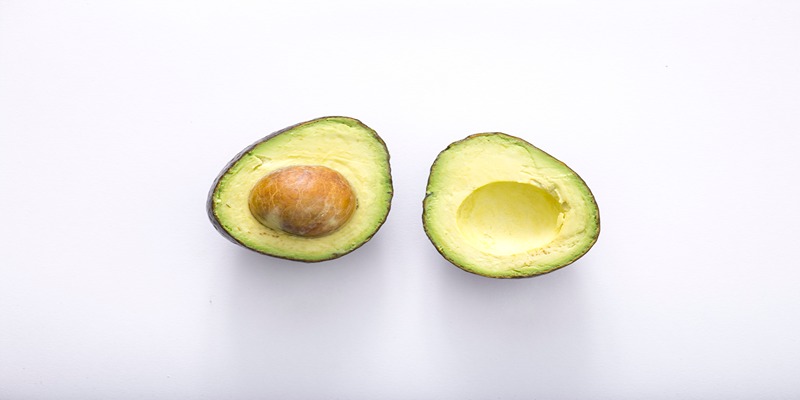Navigating the World of Plant-Based Protein: A Comprehensive Guide
Nov 07, 2023 By Madison Evans
Are you considering adding more plant-based protein to your diet but feeling overwhelmed and unsure of where to begin? You’re not alone – with so many sources of plant-based proteins available, it can be difficult to know which ones are the most nutritious and how much you should be eating. To help make this transition easier, we've created a comprehensive guide that provides an in-depth look into the world of plant-based proteins, including nutritional tips and recipes. Whether you're looking for ideas on incorporating vegan protein sources into your meals or just curious about what options are out there, this post is designed to give you all the information needed to get started on a healthier lifestyle!
What is Plant-Based Protein?
Plant-based protein refers to any type of protein that comes from plant sources rather than animal sources. This can include beans, lentils, tofu, nuts, seeds, and many other foods. Plant-based proteins are typically lower in saturated fat and cholesterol compared to animal protein sources, making them a great choice for those looking to improve their overall health.
How Does it Differ from Animal Protein Sources?
One major difference between plant-based and animal protein sources is the type of fat they contain. While animal proteins tend to be higher in saturated and trans fats, plant-based proteins are primarily made up of unsaturated fats which have been linked to improved heart health. In addition, plant-based proteins often provide fiber, vitamins, minerals and antioxidants that are not found in meat or dairy products. This makes plant-based proteins a great addition to any diet.
Types of Plant-Based Proteins Available

There are a variety of plant-based protein sources available, each with their own unique nutritional benefits. Some popular options include:
- Legumes: includes beans (black beans, chickpeas, kidney beans), lentils and peas which all provide a good amount of protein per serving. They also contain complex carbs and fiber which can help control blood sugar levels.
- Soy: includes tofu, tempeh and edamame. Soy products are a complete source of protein meaning they provide all nine essential amino acids that our bodies need for proper functioning.
- Nuts and seeds: includes almonds, walnuts, pumpkin seeds and chia seeds which are not only high in protein but also provide healthy fats, fiber and various vitamins and minerals.
- Grains: includes quinoa, oats, brown rice and whole wheat pasta which all offer a decent amount of protein per serving. They are also rich in complex carbs and fiber.
- Vegetables: includes broccoli, spinach and Brussels sprouts which may not have as much protein compared to other sources but can still contribute to your daily intake. They also provide an array of vitamins and minerals.
- Protein powders: includes pea protein, brown rice protein and hemp protein which can be easily added to smoothies or baked goods for a quick and convenient source of plant-based protein.
Incorporating Plant-Based Proteins into Your Diet
Incorporating plant-based proteins into your diet can be an easy and delicious way to add more nutrients to your meals. Here are a few tips on how to get started:
- Start small: Begin by replacing one meal per day with a plant-based protein option, such as having a tofu scramble for breakfast or lentil soup for lunch.
- Experiment with different recipes: Don't be afraid to try new plant-based protein sources and recipes. There are endless possibilities for incorporating these foods into your meals, from veggie burgers to chickpea curry.
- Mix it up: Get creative and combine different plant-based proteins in a meal, such as adding beans to a quinoa salad or using almond milk in a smoothie with a scoop of protein powder.
- Read labels: When purchasing packaged plant-based protein products, make sure to read the labels and look for options with minimal added sugars and artificial ingredients. Look for products that are certified organic or non-GMO for even healthier choices.
Benefits of Eating Plant-Based Proteins, From Health to the Environment

Adding more plant-based proteins to your diet not only has numerous health benefits, but it can also have a positive impact on the environment. Some of these benefits include:
- Reduced risk of chronic diseases: By incorporating more plant-based proteins into your meals, you may be reducing your risk for chronic diseases such as heart disease and type 2 diabetes.
- Weight management: Plant-based proteins are often lower in calories and can help with weight management when included as part of a well-balanced diet.
- Sustainable option: Producing plant-based protein sources typically requires less energy, land, and water compared to animal protein sources, making them a more sustainable choice for our planet.
Importance of Plant-Based Protein in a Balanced Diet
It's important to note that while plant-based proteins offer numerous health and environmental benefits, it's still important to maintain a balanced diet. This means incorporating a variety of whole foods including fruits, vegetables, whole grains, and healthy fats alongside your protein choices to ensure you are getting all the necessary nutrients for optimal health.
Conclusion
Incorporating more plant-based proteins into your diet can have a positive impact on both your health and the environment. With a variety of options available, it's easy to add these nutrient-dense foods to your meals and reap the benefits they offer. So go ahead and try out some new plant-based protein recipes - your body and the planet will thank you! Remember, every small step towards a more plant-based diet can make a big difference. So why not start adding in more plant-based proteins today? The possibilities are endless and the benefits are plentiful. Happy eating!
-
 Oct 30, 2023
Oct 30, 2023Combatting Maskne: Your Ultimate Guide to Clear and Healthy Skin
Discover expert tips to prevent and treat Maskne in this comprehensive guide. Say goodbye to mask-induced breakouts and hello to clear, radiant skin!
-
 Nov 14, 2023
Nov 14, 2023Yoga's awakening: Essential Poses for Novices
Awakening Yoga: Begin with beginner-friendly positions. Learn yoga's foundational positions to start your practice.
-
 Nov 10, 2023
Nov 10, 2023A Weekly Avocado to Reduce Heart Disease Risk? Examining the Evidence
Regular avocado intake might be a heart-healthy choice; explore the potential benefits.
-
 Sep 26, 2023
Sep 26, 2023Discovering Natural Ways to Kick the Smoking Habit
This article provides a comprehensive guide on natural and holistic strategies to quit smoking, highlighting the role of mindfulness, planning, and social support.
